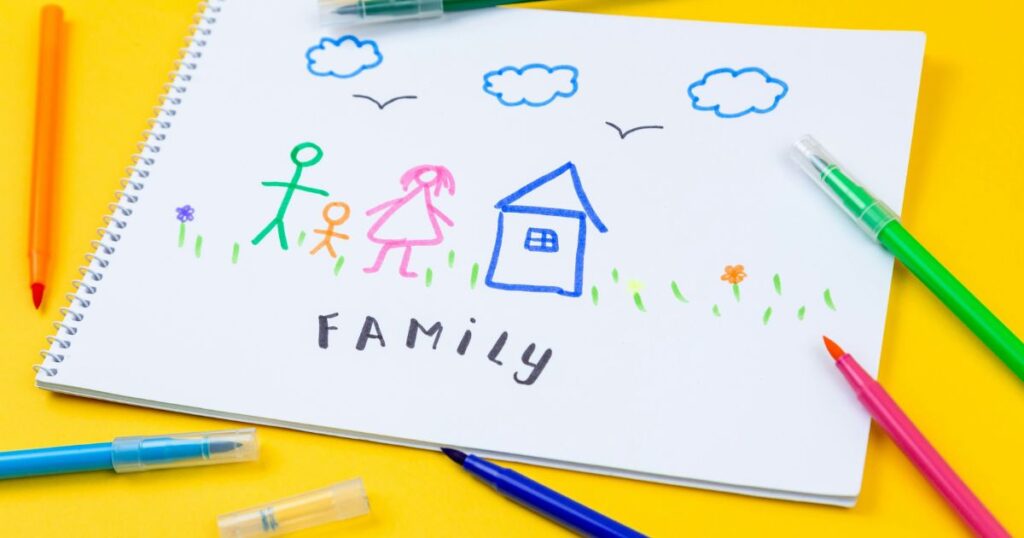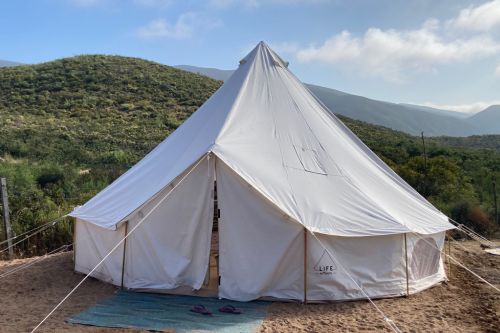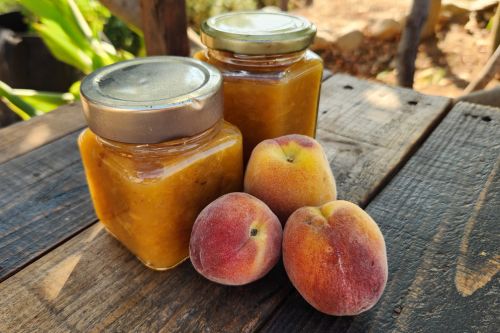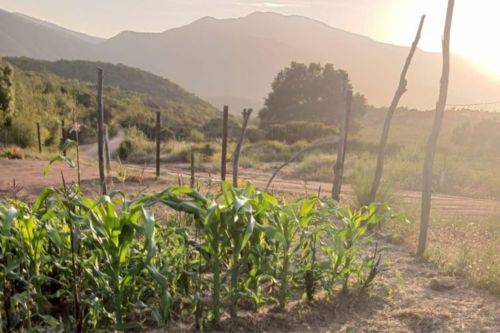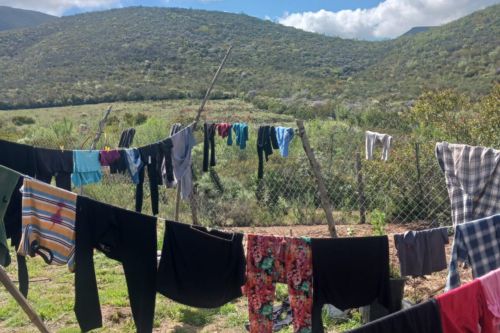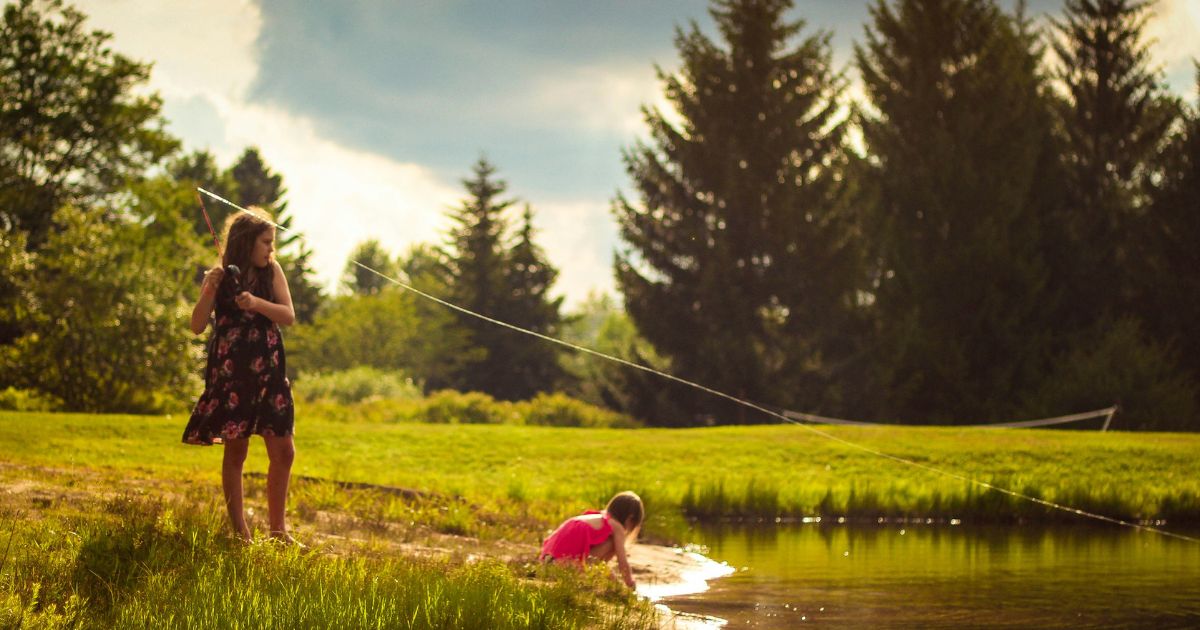The words off-grid and homestead are super buzzworthy these days. Just take a gander at social media and television shows and you’ll see how popular off-grid homestead life is (Homestead Rescue, anyone?). Let’s take a look at what these trending words actually mean and how many families are living this way in the US.
Off-grid living is where you do not have access to traditional utility systems such as water, gas, septic and electricity, but instead create your own self-sufficient utility systems. The “grid” refers to the electrical grid that people in the city and suburbs are usually tied to.
Once considered an obsolete way of living, off-grid life is making a comeback! As reported by offgridharmony.com, “According to a report by the US Energy Information Administration, an estimated 1.7% of households in the US were off-grid as of 2020. This equates to approximately 1.8 million households, encompassing around 4.6 million individuals.” Compared to a report conducted by Home Power Magazine that states that around 180,000 families lived off-grid in 2006, we can see that off-grid life is indeed becoming popular.
Why Go Off-Grid with Kids?
Why not?! In all honesty, we live in a world that is full of trials and tribulations. The future of our earth and it’s inhabitants is uncertain. If we have the opportunity to grow our own food, raise our own meat, collect our own water and firewood, and live in tune with nature, then we have a chance to provide our children with necessary life skills. These life skills can then be passed down to the next generation and the next (and so on)!
Some benefits of off-grid living for kids include:
- Learning new skills (construction, gardening, canning, herbalism, animal husbandry, and fire tending – just to name a few).
- Having a calmer nervous system due to living closer to nature and using less screens (if you limit their screen time, that is).
- Having a healthy, seasonal diet by being close to your food source (in the form of gardening and animal husbandry). This may even help with picky eaters being more open to trying new and healthy food, as well!
- Gaining confidence by acquiring and mastering new skills, as well as by proudly completing their chores each week.
- Gaining an enriched sense of creative play by being able to use their imagination in a natural, outdoor setting.
- Gaining resilience and resourcefulness by experiencing and overcoming real life challenges that help them grow mentally.
- Strengthening family bonds by working together on family projects and spending time together in nature.
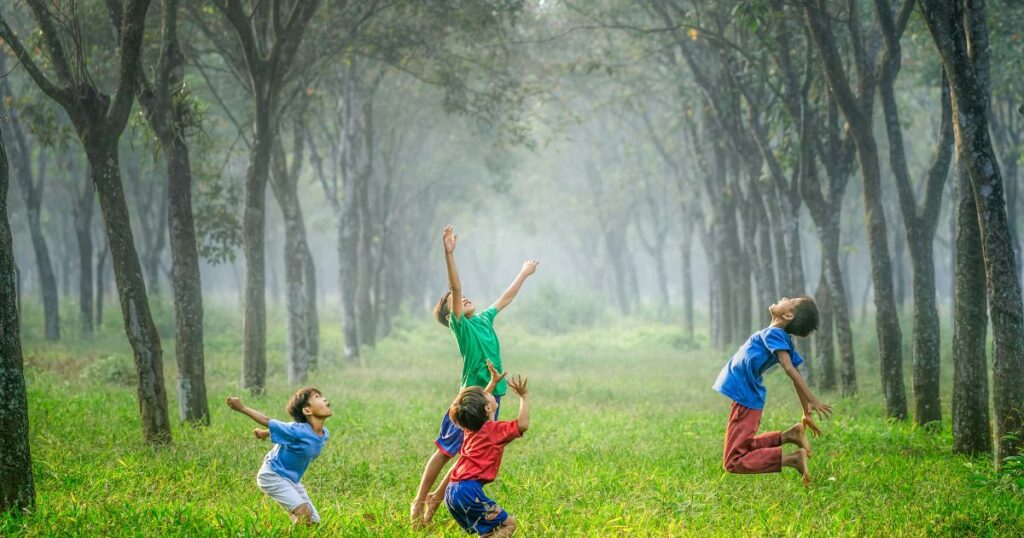
Prepare Your Kids for the Transition
Before we talk about preparing your kids for the transition from on the grid life to off-grid life, grab my FREE Off-Grid Preparation Checklist.
I’ve included every detail you will need to research in order to move off-grid. Our family had a whole year of off-grid misery because we did not plan well financially! Eventually, we learned how to do things the right way, but I wish I would have figured these things out before the big move. Take it from us – plan your off-grid move like your family’s life depends on it (because it does)!
To prepare for your family’s transition to off-grid life, you would be wise to do these 3 things:
- budget your move and lifestyle (including homestead construction, business investments, utilities, land purchase, schooling costs, legal document costs if moving overseas, food costs, insurance costs, and anything else pertaining to living off-grid).
- discuss the move with your kids and other loved ones.
- pick your location after thoughtful consideration and research (as detailed in depth below).
Remember! When planning your off-grid move you can involve your kids (if they are older kids). Although they may not be able to decide the bigger details, they can be involved in minor decision making. Maybe they can choose whether you sell chicken eggs or sheep wool as a side homestead income? Or what color to paint the barn? Either way, letting your kids help make decisions about your future off-grid homestead can help them become excited about the big move!
For more details on starting the off-grid homestead process check out our blog post: How to Start an Off-Grid Homestead.

Find the Right Location
Finding the right location will be imperative for your success in living off-grid with kids! Some factors you might want to consider when researching land/homesteads include:
- enjoyable climate (at least part of the year).
- access to water if there is no well at the site.
- safety in terms of crime, climate disasters, and wild animals
- proximity to schools, homeschool groups, and/or other families to bond with.
- proximity to hospitals, doctor offices, grocery stores and gas stations.
- proximity to museums, parks, nature preserves and other kid-friendly places.
- proximity to work (if working off the homestead).
- availability of internet (if working from home).
Nobody, I repeat nobody, wants to live with kids who are cranky 24/7 because the location you’ve chosen looks like Walter White’s front yard from Breaking Bad!

Create a Comfortable Off-Grid Home
You are going to NEED to have a comfortable area to go to if you live off-grid with kids. Not only for their well -being, but for your sanity as a parent!
If you are buying raw land and not sure what to do about housing while you are building your permanent house, check out our blog post: Living Options While Building Your Off-Grid House on Raw Land.
When creating a comfortable off-grid house for your family remember to plan on making your utilities (septic, water, electric, etc.) easy to access and use. For instance, make sure you have a special area for your solar panel set-up with enough space for all the batteries, inverter and wires that is safely put away from kids, animals and prospective thieves.
As a real life example, our family moved to a half acre property with no well. As a a result, we have to pump out our water from local neighbor’s wells and the seasonal river. Additionally, we do not have running water in our RV where we reside, and wash our bodies and dishes with buckets and scoopers. This can be demanding on us as parents to keep up with getting water every week and uncomfortable for the kids not to have running water.
Also, make sure you think of kid-friendly spaces to add to your off-grid house (especially if you plan to homeschool). These can take the form of play zones, reading nooks, educational centers, and lots of safe places to roam outside.
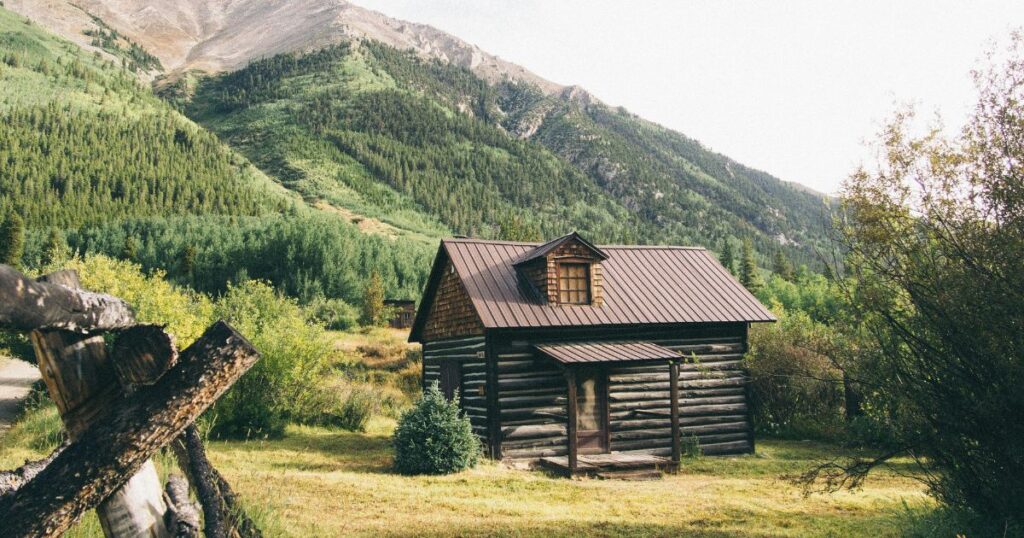
Create Educational and Recreational Opportunities
Deciding whether to have your kids do conventional schooling or homeschooling/unschooling might be a decision you’ve already pondered in your on-grid life. You’re definitely going to want find the right approach to schooling for your children that fits their learning styles and your lifestyle.
The distance from your homestead to the local school will be a big factor in your decision as well – nobody wants to drive 3 hours each day for a commute. Think through your family’s schooling decision wisely (and with your children’s input) when planning to go off-grid with kids to ensure a successful off-grid journey. Remember- we are allowed to change our minds about things too!
Whether or not you homeschool, your children’s recreational activities will be an important topic to ruminate. Make sure your off-grid homestead has spaces for safe nature exploration, creative play, DIY projects, and shelter from the harsh elements (shade during summer and warmth during winter).
Keeping your children’s academic and recreational interests in mind will help your transition from on-grid life to off-grid life go smoothly – trust me! We bought a property with ZERO trees and hot, dry summers. We learned the hard way how important the right off-grid property is when raising a family.

Daily Life and Safety Routines
Helping kids learn life skills and master daily chores and routines is an universal experience and struggle! Living off-grid exacerbates these struggles as you will be more dependent on manual labor to access your utilities than if you were living in an on-grid setting.
Make sure you prepare your children for off-grid life before the big transition by explaining the chore load. Many times we do not know what that exactly entails, but letting them know they will be doing more FUN, in-depth chores on the homestead will ensure your success in living off-grid.
It would be wise to have a safety emergency plan, as well. Make sure your children know what to do in natural disasters, accidents, animal encounters and anything else dangerous. Do not ever let children play with dangerous tools (wood-chippers, machetes, chainsaws, drills, etc.) Explain to them that they are tools, not toys, to be used under adult supervision, at an age-appropriate time.
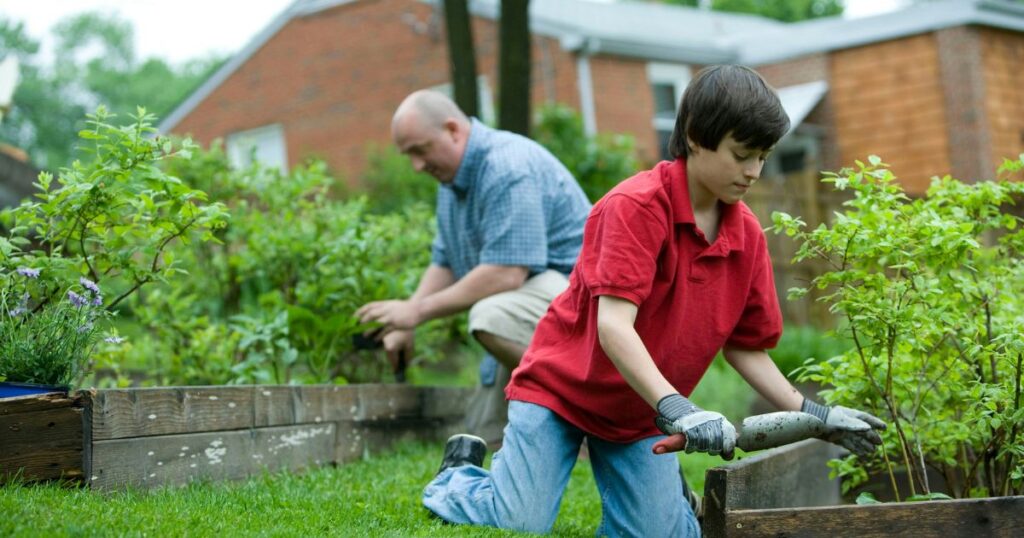
Overcoming Challenges Together
Off-grid life can be hard for anyone, especially older kids who are used to the amenities of on-grid life. It may be helpful to address and discuss your children’s fears/anxieties surrounding off-grid life. This way your kids can be reassured that all their problems have solutions and that you will work as a team to thrive!
You may need to set up a plan for balancing your children’s technology use on your off-grid ranch. Remind them that living off-grid means more connection to nature and less screen time (if that’s what you desire). Expect pushback, but keep going! Set up a written agreement and a daily schedule for screen time and stick to it.
Overcoming the unique challenges that off-grid living may bring (with grace and patience) can help you and your family bond. Taking the time to talk and plan with your children can ease some of those challenges. In the long run, your children will learn to be resilient and capable from overcoming challenges found in an off-grid setting.

Is It Really Worth It?
Despite the steep learning curve and daily challenges, off-grid life is extremely beneficial to children. Especially in the long run! Off-grid life can help your children develop critical thinking skills, and important physical life skills as well.
What a gift to give our children a chance to have a strong connection to nature and the ability to live sustainably – not just throughout their childhood, but as adults as well!
